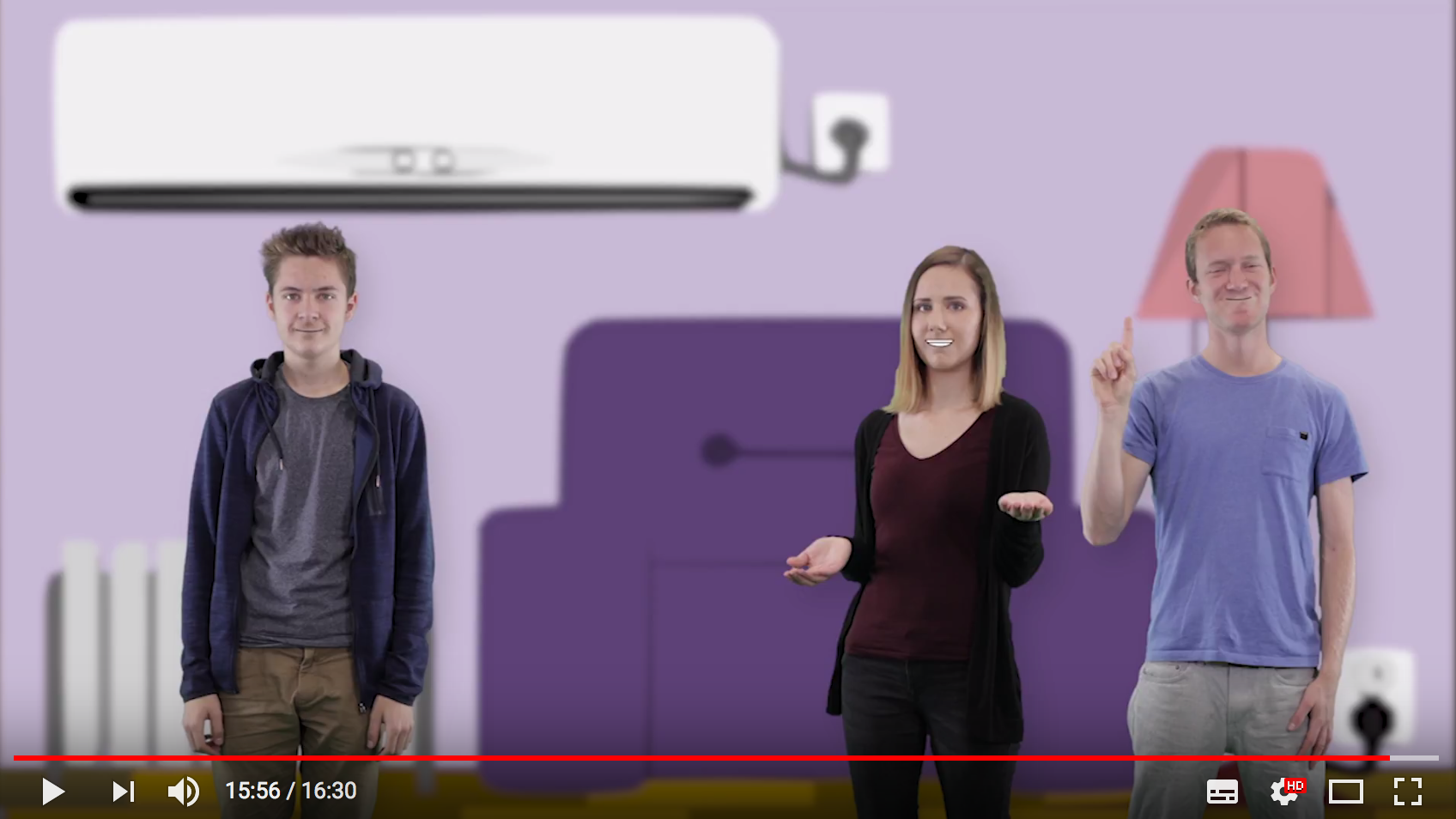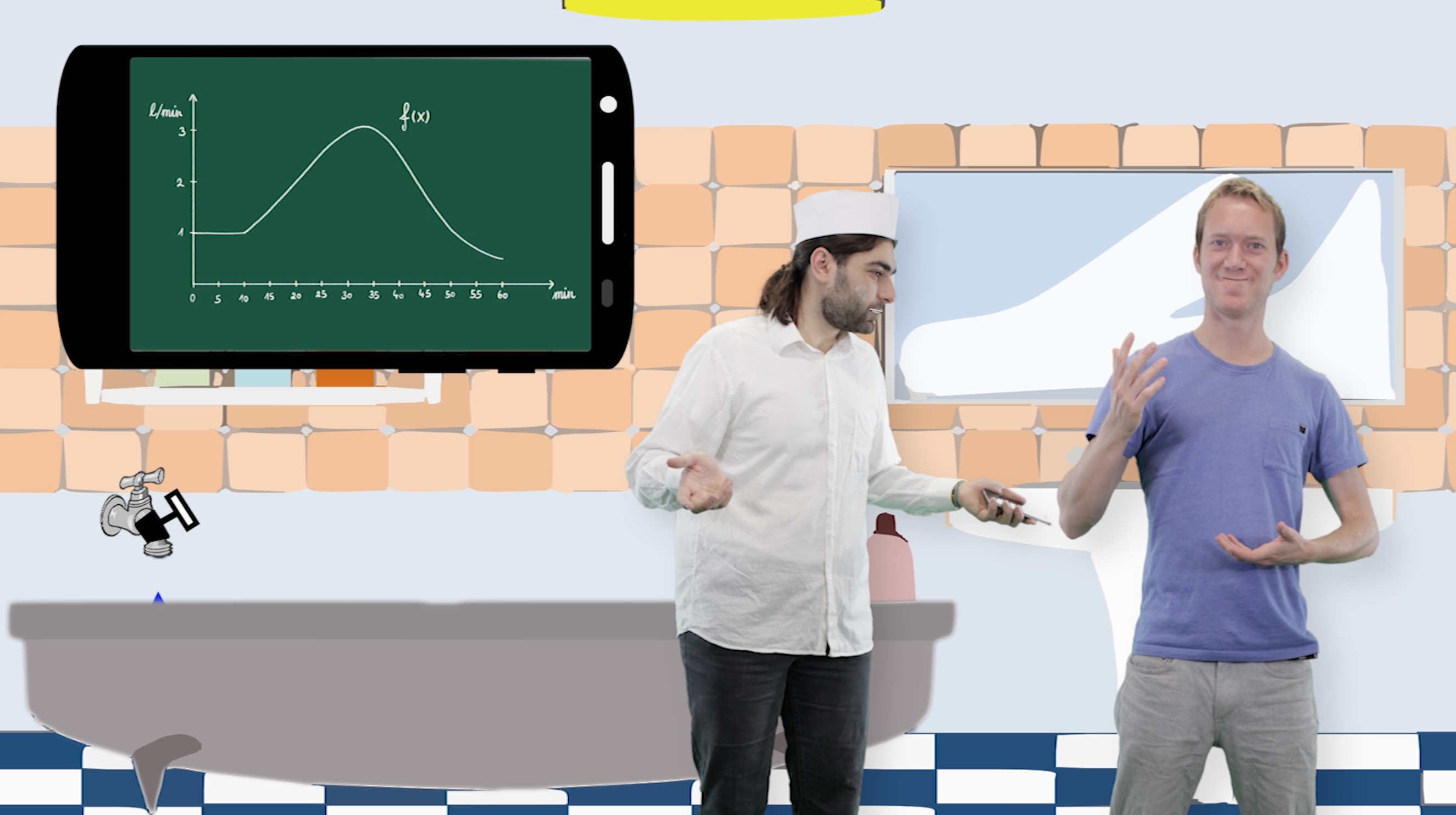
 Der MOOC „Gesellschaftliche Aspekte der Informationstechnologie“ auf iMooX befindet sich bereits in der achten Woche. Diesesmal sind die Experten Heinz Wittenbrink und Christoph Derndorfer, sowie die Queer STS Mitglieder Susanne Kink, Thomas Berger und Anita Thaler dran.
Der MOOC „Gesellschaftliche Aspekte der Informationstechnologie“ auf iMooX befindet sich bereits in der achten Woche. Diesesmal sind die Experten Heinz Wittenbrink und Christoph Derndorfer, sowie die Queer STS Mitglieder Susanne Kink, Thomas Berger und Anita Thaler dran.
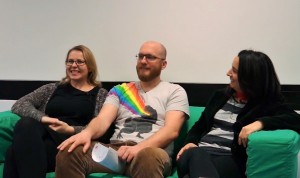 Während sich Prof. Wittenbrink mit dem Informationsfluss im Internet beschäftigt und die dort entstehende Dynamik adressiert, gibt Christoph Derndorfer der analogen Bildung die rote Karte. Danach erfolgt eine spannende Diskussion zu dritt zu IT & Gesellschaft an sich. Wenn dies die Neugier weckt, freut es mich, wenn neue Diskussionbeiträge im Forum erscheinen.
Während sich Prof. Wittenbrink mit dem Informationsfluss im Internet beschäftigt und die dort entstehende Dynamik adressiert, gibt Christoph Derndorfer der analogen Bildung die rote Karte. Danach erfolgt eine spannende Diskussion zu dritt zu IT & Gesellschaft an sich. Wenn dies die Neugier weckt, freut es mich, wenn neue Diskussionbeiträge im Forum erscheinen.
Also unbedingt vorbei schauen und mitdiskutieren – der Einstieg in den MOOC ist jederzeit noch möglich.
[Link zum Kurs]
[mooc, mint] Mathe-MOOC in Woche 7: Die Vektorrechnung #imoox #tuaustria
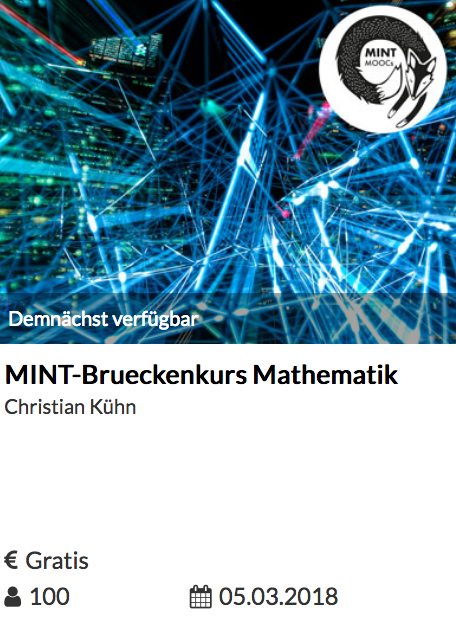 So der Brückenkurs zur Mathematik kommt in Woche 7 zum Thema Vektorrechnung:
So der Brückenkurs zur Mathematik kommt in Woche 7 zum Thema Vektorrechnung:
Die Lektion 7 befasst sich mit der Vektorrechnung. In dieser Lektion werden die Multiplikation von Vektoren, die Addition von Vektoren im R3 , sowie die lineare (Un)abhängigkeit behandelt.
Auch haben wir wieder interaktive MathLab-Übungen hinterlegt, um das Gelernte gleich selbst zu Erproben.
Mehr aber dazu wie immer im Video:
[Anmeldung ist jederzeit hier noch kostenlos möglich]
Vielen Dank an die TU Austria, die das Projekt trägt.
[ebmooc] Woche 4 bei „Digitale Werkzeuge für ErwachsenenbildnerInnen“ #ebmooc18 #imoox

So jetzt haben wir eine Woche mit den Sozialen Medien im EBmooc verbracht, daher ist nun Zeit für das Thema technologiegestütztes Lehren und Lernen, oft als „E-Learning“ bezeichnet:
Schon Halbzeit im EBmooc! Was nun folgt, ist ein kleiner Streifzug zu den Möglichkeiten von eLearning und bLearning in der Erwachsenenbildung. Naturgemäß fällt dieser Streifzug selektiv aus. Wir hoffen aber, wir haben das Spannendste für Sie ausgewählt! Der Schwerpunkt liegt auf Flipped Courses, auf Lernmanagementsystemen und auf Learning Apps.
Birgit Aschemann führt dabei in die Woche ein:
Wenn jetzt jemand noch richtig Lust verspürt mitzumachen, das ist jederzeit noch möglich – einfach anmelden:
[presentation] It’s in your pocket: A MOOC about programming for kids and the role of OER in teaching and learning contexts #imoox #pocketcode #research
Our presentation about „It’s in your pocket: A MOOC about programming for kids and the role of OER in teaching and learning contexts“ for this year Open Education Global Conference in Delft, Netherland, is now online available. Maybe you are also interested in the MOOC or even you know some children who are, than just join us here for free. We would love to teach them coding 🙂 .
[Link to the PocketCode MOOC for children]
Klicken Sie auf den unteren Button, um den Inhalt von www.slideshare.net zu laden.
[imoox] Woche 3: Wir erstellen OER #coer18 #imoox
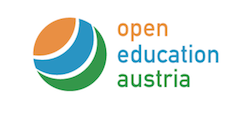 Der Kurs zu freien Bildungsressourcen geht bereits in die dritte Woche. Nachdem wir OER definiert und auch erfolgreich gesucht bzw. gefunden haben, wollen wir uns der Lizenzierung widmen. Im Zentrum dieser Woche steht also die Frage, wie komme ich nun zur Lizenz?
Der Kurs zu freien Bildungsressourcen geht bereits in die dritte Woche. Nachdem wir OER definiert und auch erfolgreich gesucht bzw. gefunden haben, wollen wir uns der Lizenzierung widmen. Im Zentrum dieser Woche steht also die Frage, wie komme ich nun zur Lizenz?
Nachdem wir wissen was OER ist, wie es definiert ist und hoffentlich auch nutzbares Material gefunden haben, geht es einen Schritt weiter. Wie kann ich denn nun meine eigenen Lehrunterlagen richtig lizenzieren? Das ist eigentlich einfach, wenn man weiß wie es geht. Dazu also ein Video diese Woche.
Im Anschluss widmen wir uns noch der Fragestellung wie man denn eigentlich bestehende OER-Materialien kombiniert und welche Lizenz das neue Material hat bzw. auch haben muss. Das schaut oft aufs Erste sehr einfach ist, kann aber durchaus kompliziert werden. Leider bleibt es aber niemandem erspart, außer die ganze Welt lizenziert mit CC 0 🙂
Anmeldungen zum MOOC sind noch jederzeit möglich.
[imoox, GADI] Woche 7: Homo Deus, Mobile Learning und MOOC #gadi18 #imoox

 Der MOOC „Gesellschaftliche Aspekte der Informationstechnologie“ auf iMooX geht nun in die siebte Woche. Diesesmal sind die Expertin Margarete Grimus und der Experte Michael Kopp an der Reihe. Die Themen Mobile Learning und MOOC. Ich denke spannend genug um mitzumachen.
Der MOOC „Gesellschaftliche Aspekte der Informationstechnologie“ auf iMooX geht nun in die siebte Woche. Diesesmal sind die Expertin Margarete Grimus und der Experte Michael Kopp an der Reihe. Die Themen Mobile Learning und MOOC. Ich denke spannend genug um mitzumachen.
 Darüberhinaus wage ich mich selbst einmal an eine Buchbesprechung, nachdem ich letztes Jahr den Bestseller Homo Deus gelesen habe, denke ich, dass es spannend ist vielleicht einmal diese Gedanken aufzugreifen und zu reflektiern.
Darüberhinaus wage ich mich selbst einmal an eine Buchbesprechung, nachdem ich letztes Jahr den Bestseller Homo Deus gelesen habe, denke ich, dass es spannend ist vielleicht einmal diese Gedanken aufzugreifen und zu reflektiern.
Also unbedingt vorbei schauen und mitdiskutieren – der Einstieg in den MOOC ist jederzeit noch möglich.
[Link zum Kurs]
[mooc, mint] Mathe-MOOC in Woche 6: Nach der Differential- kommt die Integralrechnung #imoox #tuaustria
 So der Brückenkurs zur Mathematik ruft die 6. Woche aus und es geht nach der Differential- nun um die Integralrechnung:
So der Brückenkurs zur Mathematik ruft die 6. Woche aus und es geht nach der Differential- nun um die Integralrechnung:
Die Lektion 6 befasst sich mit der Integralrechnung. In dieser Lektion werden unter anderem die grafische Darstellung eines Integrals sowie die Berechnung der wichtigsten Stammfunktionen behandelt.
Auch haben wir wieder interaktive MathLab-Übungen hinterlegt, um das Gelernte gleich selbst zu Erproben.
Mehr aber dazu wie immer im Video:
[Anmeldung ist jederzeit hier noch kostenlos möglich]
Vielen Dank an die TU Austria, die das Projekt trägt.
[mooc] Mediennutzung #mekomooc18 #imoox
Leider sind wir schon in Woche 6 und damit auch in der Abschlusswoche des MOOC zu „Medienkompetenz in der Lehre“ angelangt. Das Thema in dieser Woche ist Mediennutzung. Dazu werden wieder mehrere Videos angeboten. Auch diese Woche geht es um sehr wesentliche Themen, die man zumindest einmal gehört und bearbeitet haben sollte:
In diesem abschließenden Modul geht es um die Nutzung von Medien für den Unterricht und die Unterrichtsplanung.
Die Lernenden …
- können Applikationen für die Kommunikation und Zusammenarbeit und zur Realisierung von Projekten einsetzen.
- können digitale Medien zur Kommunikation und Kollaboration mit Lehrenden, Lernenden und Eltern einsetzen.
- kennen die digikomp Modelle und können die prototypischen Beispiele für die professionelle Praxis nutzen.
- kennen die Bedeutung von Barrierefreiheit von Medien für die Wissensgesellschaft und für inklusive Lernprozesse.
- können die Möglichkeiten für Wissensmanagement mit digitalen Medien erkennen und nutzen.
Hier als Vorgeschmack das erste Video zu „Kommunikation, Kooperation und Kollaboration“:
Wer nun mitmachen möchte, ist herzlich eingeladen – wie immer ist die Anmeldung bzw. der gesamte Kurs kostenfrei:
[Link zur Startseite des MOOC]
WICHTIG: Der MOOC wird auch an mehreren Hochschulen in Österreich als Lehrveranstaltung angeboten, wodurch es durch eine Abschlussprüfung, dann auch EC dafür gibt. Die Liste der anbietenden Hochschulen findet man auf der Seite mit der Kursbeschreibung.
[ebmooc] Woche 3 bei „Digitale Werkzeuge für ErwachsenenbildnerInnen“ #ebmooc18 #imoox

So jetzt haben wir eine Woche verschiedenste Tools und Applikationen im EBmooc angesehen, jetzt ist aber Zeit für Social Media:
Nach den vielen kleineren Tools der letzten Woche geht es nun um ein größeres zusammenhängendes Thema, nämlich um Social Media in der Erwachsenenbildung.
Hier wartet der Social-Media-Experte Peter Webhofer mit seinem Wissen auf und führt uns anschließend in die Praxis mit einigen Übungsmöglichkeiten ein.
Peter Webhofer in seinem Einführungsvideo:
Wenn jetzt jemand noch richtig Lust verspürt mitzumachen, das ist jederzeit noch möglich, einfach anmelden:
[imoox] Woche 2 im COER18: Suchen und finden von OER #imoox #coer18
 Der Kurs zu freien Bildungsressourcen geht bereits in die zweite Woche. Nachdem wir OER nun definiert haben, widmen wir uns der Frage wo gibt es denn bereits OER und wie finden wir etwas passendes:
Der Kurs zu freien Bildungsressourcen geht bereits in die zweite Woche. Nachdem wir OER nun definiert haben, widmen wir uns der Frage wo gibt es denn bereits OER und wie finden wir etwas passendes:
Diese Woche wollen wir uns ansehen, wer denn überhaupt OER bereits zur Verfügung stellt. Und vielleicht überraschend für Sie, es sind bereits erstaunlich viele. Wenn man also weiß wo man schauen kann, findet man sehr schnell wahre Schätze. Sollte das noch nicht ausreichend, dann geben wir im zweiten Video Hinweise wie man ganz gezielt nach OER suchen kann.
Wir wünschen also eine erfolgreiche Schatzsuche 🙂
Anmeldungen zum MOOC sind noch jederzeit möglich.

